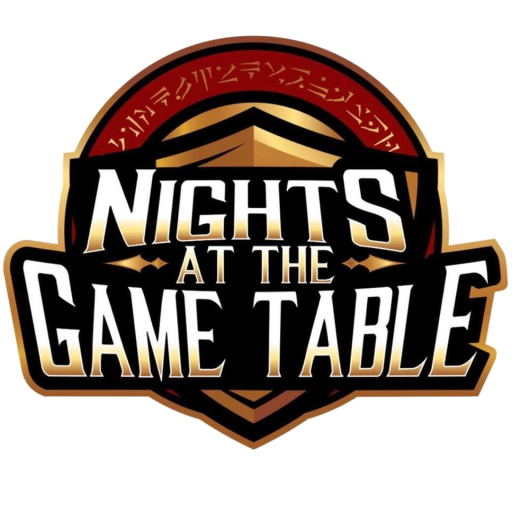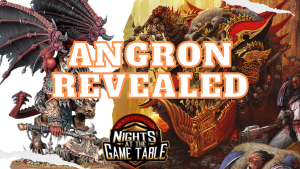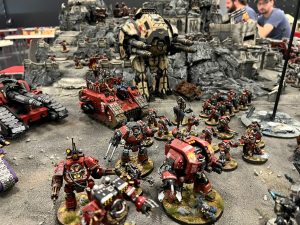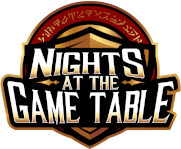Very recently a 40k coaching client asked me one of the most interesting and thought provoking questions I’ve ever been asked. It was actually such an interesting question I felt obligated to write an entire article answering the question as opposed to simply answering it on one of our private calls. He asked me “How do you identify your mistakes and then learn from them- is it just an experience thing, or is there more to it?”
Anyone ever who gives you advice in 40k or life will probably tell you at one point or another to learn from your mistakes, and of course that’s some solid ancient wisdom. But, I like to focus on practicality. How does one learn from their mistakes? Especially in a game so complex as 40k, where there’s hundreds of options presented to you all the time.
To answer this question, I think we need to define the two types of mistakes you can make: tactical mistakes and strategic mistakes.

Tactical Mistakes– Tactical mistakes are what I like to refer to as “micro 40k” they consist of mistakes like wasting command points on a stratagem unnecessarily, not wrapping a model to prevent it from falling back out of combat, and casting psychic powers in the wrong order which led to you burning your precious CP reroll on one power only to not have the reroll when you need it for a more important power later. Tactical mistakes can often be caught immediately after they were made (or in an upcoming phase when you’re being punished for them), and they are easily correctable by just simply identifying them and then making note of them, so they don’t happen again. These are not fundamental mistakes, these are simply errors in execution.
Strategic Mistakes- To continue with the analogy, if tactical mistakes are “micro 40k” then strategic mistakes are “macro 40k”. These are mistakes that have to do with your fundamental strategy: do you play aggressively or passively, how do you deploy your units, are you planning to win certain aspects of the mission while conceding on other aspects? Strategic mistakes are almost never caught immediately after they happen, as they change how the entire game thereafter is played. These are the mistakes that you should spend the bulk of your time thinking about when you’re reflecting about how the game went. These are the fundamental mistakes.
Now that I’ve covered both types of mistakes, I think my clients question, and the one worth focusing on, is how you identify your strategic mistakes and learn from them.

It actually starts at the beginning. You need to identify what you need to do to win the game. This is a concept spoken about in many games, and is not unique to 40k, it is known as identifying your win conditions. In essence, what things need to transpire for you to win the game. Obviously, assuming you’re playing a tournament format it entails accruing more points than your opponent throughout the game. The next questions is how do you do that from a strategic perspective. Is your best bet running at the other guy at full speed, and establishing board control while just trying to survive while standing on all the objectives? Or maybe it’s to play super hard core denial, not giving up any kills through clever use of reserves and terrain while plinking away at his minimum sized cultist squads with your whirlwinds to create a minimalistic points lead. Whatever it is, once you identify your best strategy to win the game (your win condition) you then need to just keep taking steps to further that goal through deployment, target priority, movement, reserves, level of commitment with your units etc…
Recently, I played in a team tournament where I played my fairly standard Ork list, bunch of characters, 120 boys, bunch of grots, 25 lootas) against a fairly standard Tau list (commanders, marker light characters, multiple riptides, drones, tetras, and some fire warriors to fill the battalion). My opponent’s team sought this match up out, as their Tau player had previously stomped two Ork players. It was Hammer and Anvil, in an ITC mission. The Tau player deployed his entire army in the middle of his deployment zone and was going first unless I seized the initiative (using new ITC mission rules). I responded by deploying my lootas and grots all in the very back corner of the tale with some characters, and put 90 of my 120 boys into reserves.

My strategy was definitely counter intuitive, but let me break it down for you. My best bet to win was to trap a non flying model (fire warrior, marker character, etc) with as many orks as possible and use that to open a foot hold into my opponents army, and pick him apart from there. Doing this with a pile of unshootable objective secured Orks will also let me start holding my opponents objective, which should net me the end of battle round mission points for holding more objectives than my opponent, holding my opponents objective for a bonus point, and put me in a position to get the point for killing more units in a battle round as well. This is my win condition. This is what I need to do to win the game.
So then, what strategic decisions can I make to ensure this happens? The only way to trap a model like this is via assault. How do I assault the tau army, and get passed all the flying drones and tetras? I shoot the flying stuff, so that way when I launch my charge I can get to the foot people to take a hostage. How do I get my assault stuff to the Tau army when I know he’s going first and will light me up? I reserve all my assault elements, and rely on 4 separate instances of rerollable 8″ charge to get into my opponent.

In the actual game that was played, my opponent said he never saw anyone deploy like this and was expecting me to just run at him traditionally as his two previous opponents had done (clearly not members of Nights PRO). On my opponent’s first two turns he basically just set up screens and waited. For my first two turns I systematically killed all the drones, and tetras, removing all of the flying screens from my opponent’s army, whilst simultaneously leveraging the advantage of going second to make sure I kill *exactly* enough enemy units to get the point for kill more every battle round. On turn 3 I deep struck all 90 boys, and jumped 30 more forward. I ended up making 3/4 rerollable 8″ charges and my opponent conceded after he saw the position he was in.
So, let’s say you don’t see this line of play. And, you play the more traditional line by deploying your boys up front, and just start running. The tau army goes first and actually gets to shoot you for 2 turns straight. At this point, even if your lootas still kill all the flying screens by the time you’re ready to charge, you just won’t have any boys left to charge with. From there your lootas will lose the fire fight with the remainder of the Tau army, and you’ll probably lose. This match up may even feel “unwinnable”. Clearly, you’ve already made a strategic mistake when you compare this alternate universe to the one in which I had my Tau opponent conceding by turn 3, but how do you identify it? What if it didn’t even cross your mind to deep strike everything? How can you correct a mistake you can’t identify?

These are excellent questions! The answer comes from the very basics of 40k: playing the mission, and identifying your win condition. If you were the guy who deployed the entire Ork army, ran across the table, and got shot off the board by turn 3, think critically and objectively about what happened. You clearly couldn’t just charge through the Tau army, especially since they went first, but you need to get into combat to win the game. If you can’t charge at him conventionally, then you need to play a different kind of game. What are your alternative options? Hide and wait for him, or reserve everything and wait for an opening. Realistically, either of these options could have worked, but I personally went with the reserve everything option. Deploying everything on the line (traditionally) and just running at the Tau would have been a strategic mistake.
In a practice game I played in preparation for LVO back in January I found myself in this exact scenario. I deployed my ork army and tried the traditional Waaagh. Needless to say, it didn’t work. I then went back and thought about that game for quite some time, going back and figuring out what exactly went wrong (strategically), and what “big picture” stuff I could have changed.

The point here is not to go over what the optimal line of play in the above scenario is, but rather to demonstrate that identifying strategic mistakes is the key to victory and getting better. I don’t want to get lost in the minutiae of Ork stratagems, and Tau deployment options, but rather I want to focus on the big picture of identifying your win conditions, then creating a strategy that directly helps you meet those conditions. After you lose a game (or even if you win a game) start out by evaluating your win condition, then follow it up with evaluating your strategy: was your strategy one that brought you closer to meeting your win conditions? After that you can start looking at your tactics. Somewhere in there is the reason(s) why you lost.
I’d also like to point out that you don’t have to lose to identify or learn from your mistakes either. Winning a game doesn’t mean you played it perfectly and that there’s no room for improvement, but rather, it simply means your opponent played a more incorrect game than you did. I evaluate my wins just as much as my losses, and it really pushes me to get better. Just some food for thought here.
Well, I think that’s more than long enough for you guys, so with that I shall leave you. If you enjoyed this article, and want to learn from the top players in 40k I urge you to check out Nights PRO or Nights PRO lite, so that we can help you identify your mistakes!

Warhammer 40k Winning Lists June 11th Edition
With summer in full swing, we see a refreshing number of tournaments kick back up globally, ranging from 3 to 7 rounds



